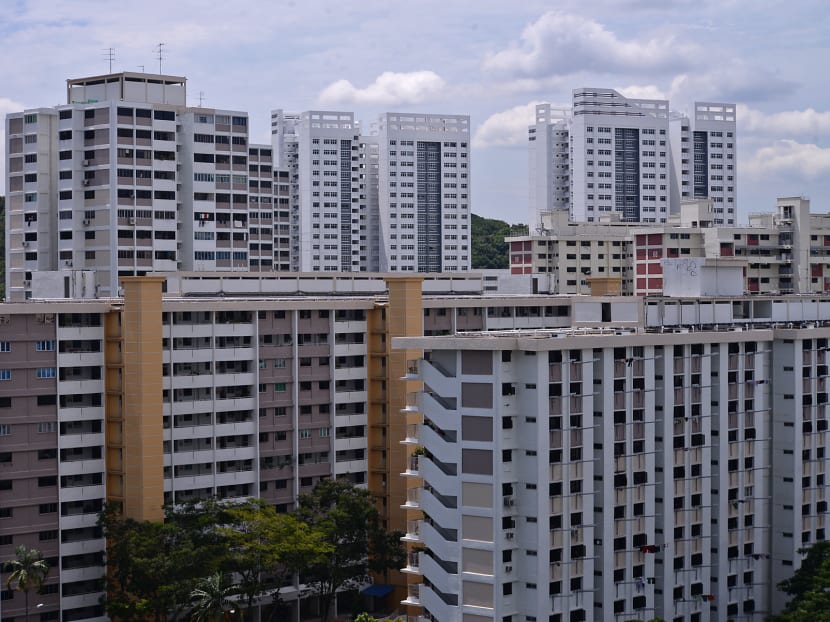MP suggests changing valuation method for ageing flats to raise demand
SINGAPORE — With owners of older HDB flats worried about the value of their homes as their leases shorten, Ms Cheryl Chan, Member of Parliament for Fengshan constituency, proposed taking a “multi-prong” approach to help sellers and buyers by changing the valuation method for ageing units and extending the lease for flats in mature towns of selected precincts.
SINGAPORE — With owners of older HDB flats worried about the value of their homes as their leases shorten, Ms Cheryl Chan, Member of Parliament for Fengshan constituency, proposed taking a “multi-prong” approach to help sellers and buyers by changing the valuation method for ageing units and extending the lease for flats in mature towns of selected precincts.
To further help Singaporeans put a roof over their heads, she also proposed reassessing the property loan structure and allowing selected older flats to be leased directly from the Housing and Development Board (HDB).
In Parliament on Monday (May 14), during the first day of a debate on the President’s Address, Ms Chan said that housing is a “top concern” for the “vast majority of Singaporeans”, and it is time the Government take into account other considerations for HDB flats that are 50 years and older, and enhance the Selective Enbloc Redevelopment Scheme (Sers).
On the matter of older flats, Ms Chan noted that owners have difficulties selling their property with a greater supply of housing units in the market and a reducing lease, while buyers find such flats priced out of their reach.
These flats should not be valued, therefore, using “the comparison method” of past market transactions.
“I suggest the valuation to be based instead on its remaining lease, length of time occupied by current owner, and its right-sizing potential,” she said.
This will enable older homeowners to unlock their cash, right-size (or downsize) to a smaller unit, and move nearer to their children if they prefer.
It also allows young families or singles to get affordable flats in mature estates from the resale market and “enhance the social mix”, she added.
Moving to her point about Sers, where flats are vacated and demolished to facilitate future development, and homeowners are given compensation and the option to relocate to other public housing units, Ms Chan observed that it can be tough to carry out redevelopment given the lack of new land plots in mature estates.
“As HDB flats are typically built precinct by precinct, so rather than selling new land plots for private property, allow the private developers to top up the land lease of HDB flats for future development,” she proposed.
Likewise, the Government can convert plots of land meant for private housing to public housing in future when the lease is up, she added, thus creating a better mix of private and public housing in the long run.
Her suggestions came as the HDB resale market continues to be lacklustre, as flash estimates last month showed that prices of resale flats have fallen for six consecutive quarters. Some property analysts attributed this to the realisation among prospective buyers that not all old flats will be eligible for Sers, and the declining value of HDB flats with less than 65 years worth of lease left.
In a Facebook post in March last year, National Development Minister Lawrence Wong noted that only 4 per cent of HDB flats have been earmarked for Sers since its launch in 1995. “For the vast majority of HDB flats, the leases will eventually run out, and the flats will be returned to HDB, which will in turn have to surrender the land to the State,” he said then.
As of December 2016, there were a total of about a million HDB flats in Singapore. Among these, about 7 per cent were at least 40 years old. Another 29 per cent were between 30 and 40 years old, HDB had previously said.
REVIEW PROPERTY LOAN STRUCTURE
To support Singaporeans in need of a home, Ms Chan recommended that the authorities also re-assess the property loan structure and Central Provident Fund (CPF) policies in funding property purchases.
This means pegging the loan period and CPF funds usage for members up to age 55.
“With a changing job landscape, most workers are not limited by their will to work or the legal retirement age; but rather the possibility of being offered a steady income job beyond that age. As the gig economy presents more variability in a steady income, the need for one to be repaying mortgage beyond age 55 is likely undesirable,” she reasoned.
For those who are not in the low-income group but are in need of interim housing, Ms Chan suggested that they be allowed to rent units — subject to a maximum period — directly from the HDB. These would be selected flats with 45 years lease or less.
She noted that those who need interim housing could include families in transit, young working adults with little need for permanent place due to their job nature, and single parents who need immediate shelter after their matrimonial flat is sold.
“(This could) give them the flexibility and space to manage or rebuild their lives,” she added.







